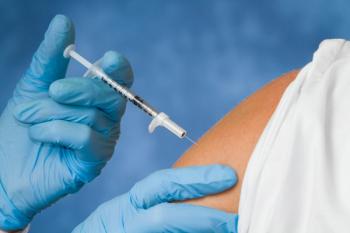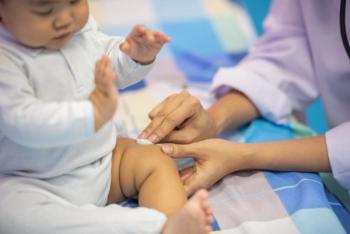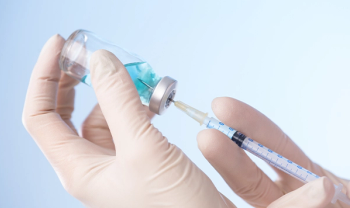
Updated ACIP Faces Key Vaccine Decisions as September Meeting Kicks Off Tomorrow
ACIP's upcoming meeting addresses vital vaccine updates, including COVID-19 and MMRV, while introducing new members to enhance public health transparency.
The Advisory Committee on Immunization Practices (ACIP) will hold a two-day meeting starting Thursday, September 18, to discuss a wide range of vaccine topics, including updates on COVID-19 vaccines and routine immunizations for measles, mumps, rubella and varicella (MMRV). The meetings, which are open to the public through livestream on the CDC’s YouTube channel, will offer a glimpse into the federal process guiding vaccine recommendations in the U.S.
ACIP typically meets three times a year to review scientific data and vote on recommendations. Overall, these sessions influence decisions on vaccine availability, insurance coverage and public health programs such as Vaccines for Children (VFC). This year’s September meetings come at a time when significant changes to the committee itself have come about.
A few days ago, the Department of Health and Human Services (HHS) and the CDC announced the appointment of five new members to ACIP, reflecting the administration’s stated focus on transparency, evidence-based science and diverse expertise.
“ACIP safeguards the health of Americans by issuing objective, evidence-based vaccine recommendations,” HHS Secretary Robert F. Kennedy Jr. said in the announcement that was released Sept. 15. “Its new members bring diverse expertise that strengthens the committee and ensures it fulfills its mission with transparency, independence, and gold-standard science.”
The newly appointed members include:
- Catherine M. Stein, Ph.D. – Case Western epidemiologist, expert in infectious disease and genetics.
- Evelyn Griffin, M.D. – OB-GYN in Louisiana, pioneer in robotic surgery and maternal health.
- Hillary Blackburn, Pharm.D., MBA – Pharmacy leader focused on access and affordability.
- Kirk Milhoan, M.D., Ph.D. – Pediatric cardiologist, veteran and global health nonprofit founder.
- Raymond Pollak, M.D. – Transplant surgeon and immunobiologist with extensive research background.
Two weeks ago, Kennedy testified before the Senate Finance Committee, facing questions about his appointment of the new ACIP panel who were suggested was made of vaccine skeptics.
However, Deputy Secretary of HHS and Acting CDC Director Jim O’Neill stated in the recent announcement that these new members “bring a wealth of real-world public health experience to the job of making immunization recommendations.” O’Neill added that his team is grateful for their service “in helping restore the public confidence in vaccines that was lost during the Biden era.”
Day one of the ACIP meeting is expected to be packed.
Starting at 10 a.m. and scheduled to adjourn after voting by 5:30 p.m., the agenda includes updates from working groups and discussions on MMRV vaccines. The committee will review background information, a presentation on febrile seizures following MMRV vaccination and proposed recommendations.
Hepatitis B vaccines are also on the docket, including presentations on birth-dose administration, safety updates and potential recommendation changes. The first day will conclude with agency updates from the CDC, CMS, FDA, HRSA, IHS,and NIH, followed by public comments and votes.
Day two, Friday, September 19, will primarily focus on COVID-19 vaccines.
The agenda covers epidemiology updates, implementation considerations, effectiveness and safety data, economic analyses and vaccine manufacturer updates. Recommendations and discussion on new COVID-19 formulations are expected.
The meeting comes amid public concern over proposed changes to vaccine timing.
During a Senate Committee hearing today, it was reported former CDC officials suggested the ACIP might vote to delay the hepatitis B birth dose until age 4.
In response, the National Foundation for Infectious Diseases (NFID) urged ACIP to maintain its evidence-based, transparent process.
“For decades, ACIP’s strength has been its rigorous, transparent, evidence-based process,” NFID Medical Director Robert H. Hopkins Jr., M.D, said in an announcement made today. “Any departure from that approach undermines public trust and risks weakening the nation’s response to serious infectious disease threats.”
The organization stressed the importance of continuing vaccination from birth for hepatitis B, ensuring access to COVID-19 vaccines and maintaining coverage for MMRV and RSV immunizations.
Health plans have also signaled support for evidence-based vaccine coverage.
According to AHIP, “Health plans will continue to cover all ACIP-recommended immunizations that were recommended as of September 1, 2025, including updated formulations of the COVID-19 and influenza vaccines, with no cost-sharing for patients through the end of 2026.”
Experts also shared clear communication is critical as families navigate vaccination decisions, particularly given federal and pediatric guidance divergences.
David Dodd, CEO of vaccine developer GeoVax, previously told MHE that parents should start by scheduling the ‘must-have’ school vaccines: MMR, Tdap, polio and more.
“Those requirements are set by states and haven’t changed. Then add flu for everyone six months and older and RSV protection for infants,” he added. “For COVID-19, recognize the current split: CDC/HHS have moved children 6 months–17 years to a shared clinical decision-making model with your clinician, while the AAP actively recommends vaccination for all children 6–23 months and for older high-risk kids.”
In addition, Jennifer Walsh, DNP, CPNP, highlighted risks of restricted COVID-19 vaccine access.
Limiting recommendations could “negate the well-researched benefit of vaccination in pregnant women and infants and toddlers,” she said to MHE, adding that it could exacerbate disparities and reduce population immunity. Walsh stressed that providers must “welcome open conversations” and rely on professional societies to translate evidence and combat misinformation.
The upcoming ACIP meeting, streamed live for the public, will show how new members weigh science, health needs, and policy in making vaccine decisions that affect millions of Americans of all ages.
Newsletter
Get the latest industry news, event updates, and more from Managed healthcare Executive.

























